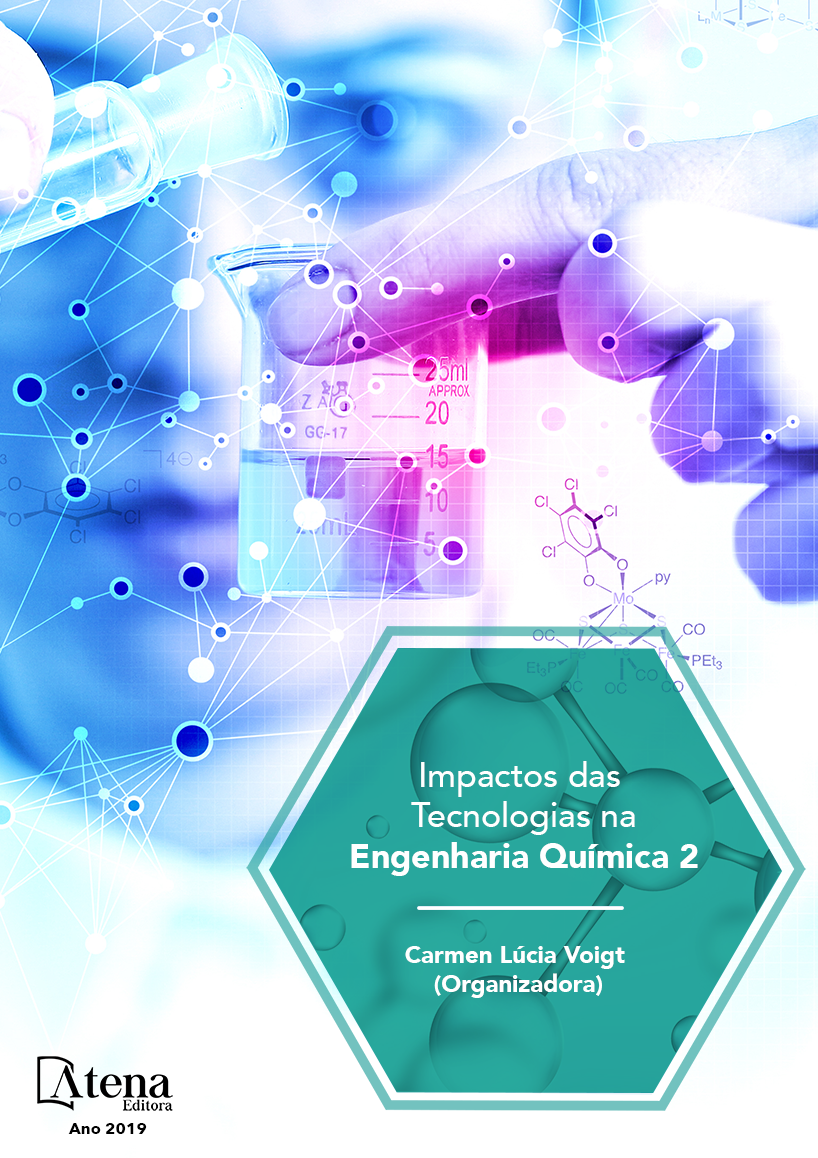
RENDIMENTO E COMPOSIÇÃO QUÍMICA DO ÓLEO ESSENCIAL DE Piper divaricatum EM FUNÇÃO DA GRANULOMETRIA E MÉTODO DE EXTRAÇÃO
Piper divaricatum é uma planta
aromática nativa do Brasil, fornecedora de óleo
essencial com diversas aplicações descritas na
literatura. O objetivo deste trabalho foi avaliar
a influência da granulometria e do método de
extração no rendimento e composição química
do óleo essencial obtido das folhas dessa
espécie. As folhas foram separadas em duas
frações denominadas média (1,11mm ± 0,01)
e grossa (3,08mm ± 0,01) e então seus óleos
essenciais foram obtidos por arraste a vapor
e hidrodestilação. A composição química foi
determinada por CG/EM em sistema Shimadzu
QP-2010 Plus. Os resultados mostraram que,
para ambas as frações granulométricas, os
melhores rendimentos foram alcançados por
meio da técnica de arraste a vapor. Metileugenol
foi o componente majoritário para todas as
condições avaliadas e seus maiores teores
foram quantificados na fração grossa (60,17%),
por meio da destilação por arraste a vapor.
RENDIMENTO E COMPOSIÇÃO QUÍMICA DO ÓLEO ESSENCIAL DE Piper divaricatum EM FUNÇÃO DA GRANULOMETRIA E MÉTODO DE EXTRAÇÃO
-
DOI: 10.22533/at.ed.36419030417
-
Palavras-chave: hidrodestilação, arraste a vapor, metileugenol.
-
Keywords: hydrodistillation, steam distillation, methyl eugenol.
-
Abstract:
Piper divaricatum is an aromatic
plant native of Brazil and it is an essential oil
supplier with several applications described
in the literature. The objective of this work
was to evaluate the influence of particle size
and extraction method on yield and chemical
composition of the essential oil obtained from
the leaves of this species. The leaves were
separated into two fractions denominated
medium (1.11mm ± 0.01) and coarse (3.08mm ± 0.01) and then their essential oils
were obtained by steam distillation and hydrodistillation. The chemical composition
was determined by GC/MS in Shimadzu QP-2010 Plus. The results showed that for
both granulometric fractions, the best yields were achieved by means of the steam
distillation technique. Methyl eugenol was the major component for all the evaluated
conditions and its highest contents were quantified in the coarse fraction (60.17%), by
means of steam distillation.
-
Número de páginas: 15
- Tainá Oliveira dos Anjos
- Rafaela Oliveira Pinheiro
- Márcia Moraes Cascaes
- Lidiane Diniz do Nascimento
- Eloisa Helena de Aguiar Andrade
- Erick Monteiro de Sousa


